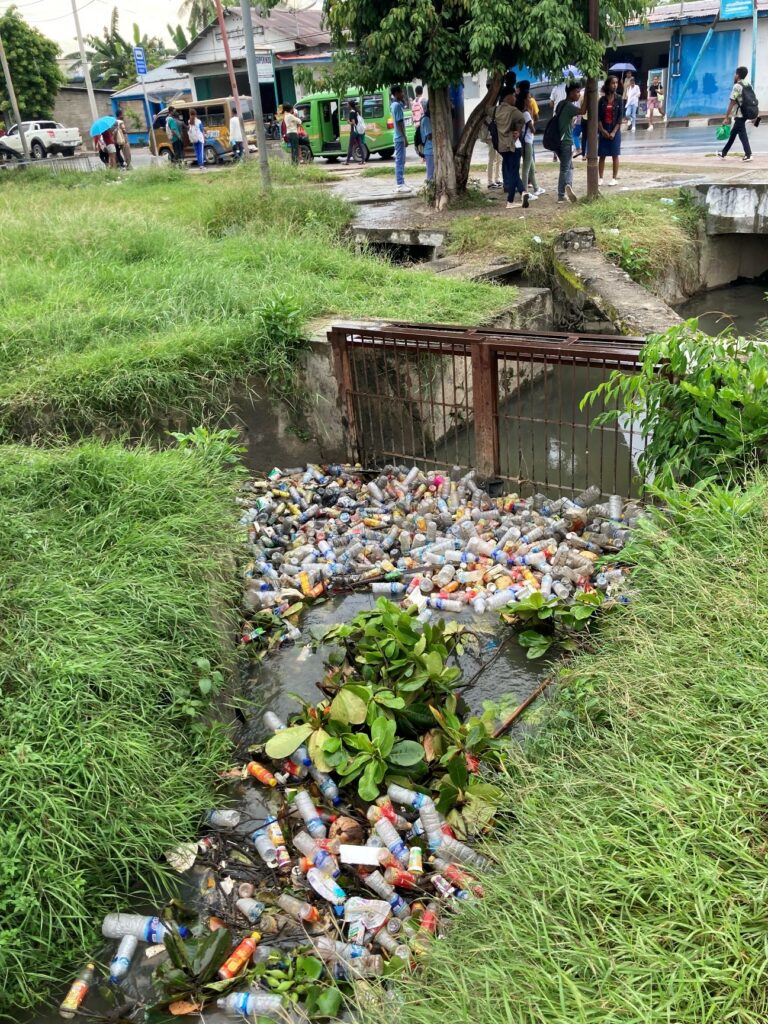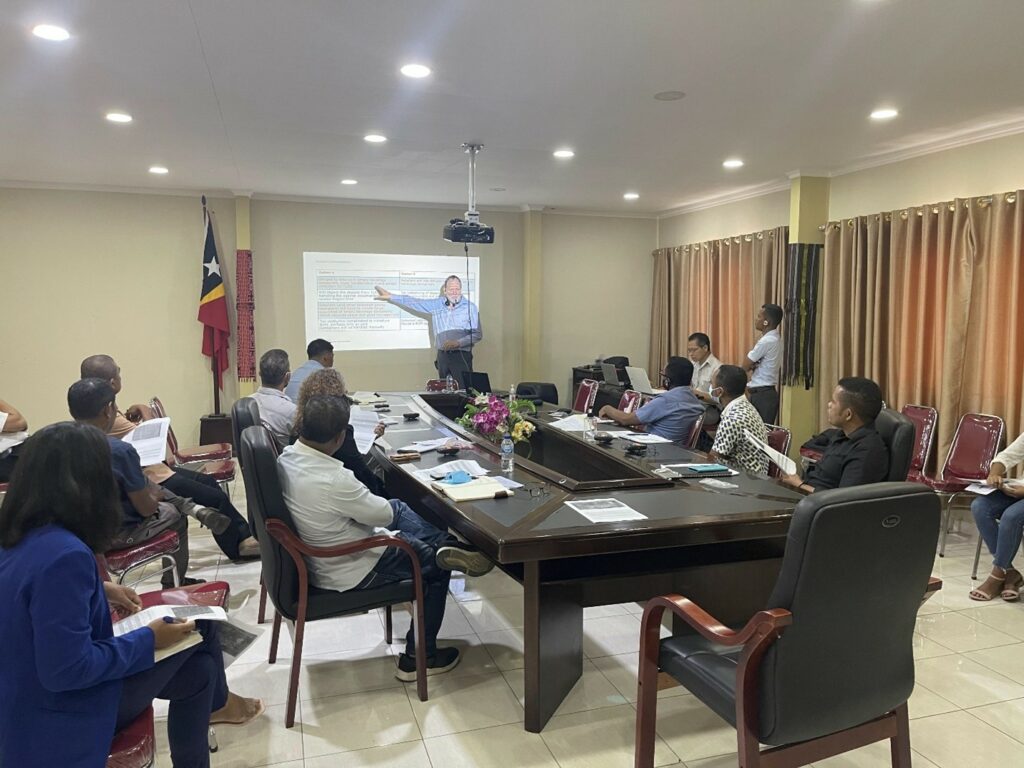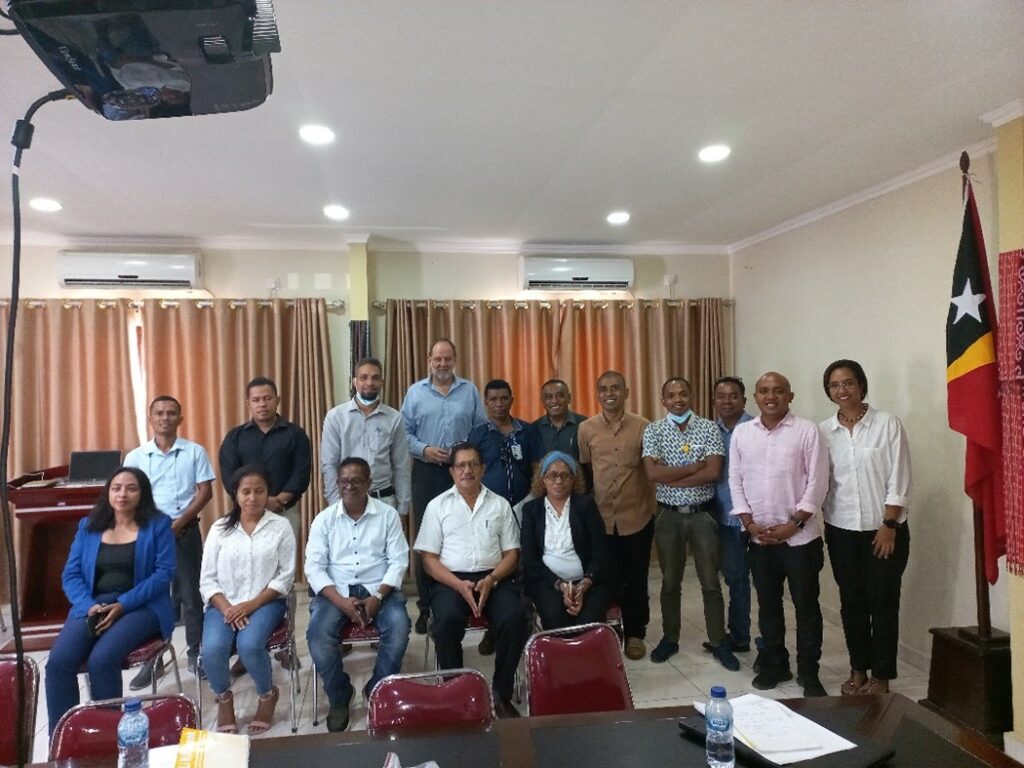The Project Preparation & Implementation Programme for Timor-Leste (PPIP) Key Expert for Solid Waste Management, Mr Jan Skajaa, conducted a workshop on 2 June 2022 regarding the proposal for a Deposit Return Scheme (DRS) for Timor-Leste. The workshop was attended by representatives from MPO, DNOV/MAE, ANAS, NDPC, SEA, ANLA, Ministry of Health, and Ministry of Finance.
Mr Jan Skajaa presented the proposed DRS scheme for Timor-Leste. A DRS is a system whereby consumers buying a product pay an additional amount of money (a deposit) on top of the product price that will be reimbursed upon the return of the packaging or product to a collection point. A DRS will provide a very strong incentive for consumers to return the product/packaging to a collection point hereby reducing mismanagement or illegal dumping. Based on the principles of Extended Producer Responsibility, a DRS provides the means for a low-cost and highly effective collection system for target materials/products, which moreover is easily monitored and enforced.
Mr Skajaa provided two alternative options for the organisation of the collection, transport, and ultimate reuse/recycling/management of beverage containers.
In the first alternative, consumers take the empty containers back to the original vendor where the deposit is refunded in cash. The vendors are obliged to take back the empty containers and from them the containers are collected by a centrally established organization.
In the second alternative, consumers must take the empty containers to a designated Deposit Return Station, where the deposit is refunded via smartphone app or directly onto consumers bank account. A central organization maintains the Deposit Return Stations and collects and transport the containers for processing/recycling.
Both alternatives will require some regulatory adjustments and the establishment of a central organisation that will manage the system and process containers. This organisation may be a government-owned entity, or the operation may be tendered to a private concessionaire.
The expected main effects of introducing a DRS for Timor-Leste are that more than 100 million plastic bottles a year will be collected and managed properly – and therefore not contribute to the pollution of the environment. A DRS will also provide new jobs and business opportunities.
Financing of investments under the proposed DRS scheme is anticipated to take place by a combination of government grants and IFI loans/grants, including contributions from the EIB. Operational costs are to be covered by the industry and from revenues obtained from selling recyclable materials.
Details of financing and operation of the proposed scheme are to be developed under the current PPIP programme and presented in reports due by the end of 2022 and 2023.

The participants welcomed very much the presentation and acknowledged that actions are needed to battle plastic waste. The proposed system was seen as a good solution but there were concerns regarding the organization structure to manage the scheme and also the necessary legislation required. Further development of the proposed system is needed and presented in practical details and adapted to Timorese conditions.
On a final note, Mr Jan Skajaa noted that currently, 10 US states, Canada’s largest provinces, Australia, Germany, the Netherlands, all of the Nordic countries, some east-European countries, Israel, some pacific states, and other countries/regions have successfully implemented a deposit return scheme (DRS), mainly for beverage containers. He is confident that this scheme can be adapted to the Timor-Leste conditions and would be of great benefit to winning the battle against waste.



